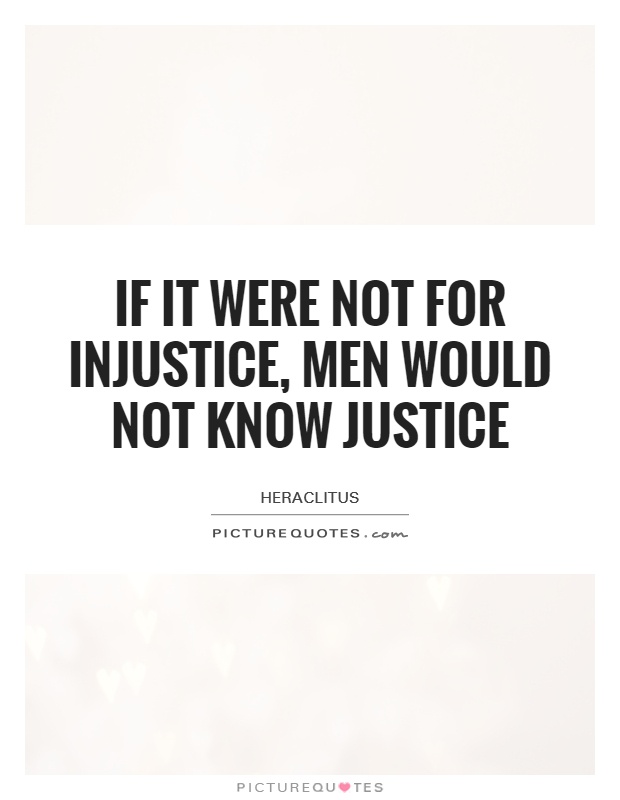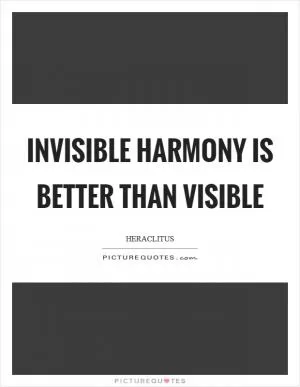If it were not for injustice, men would not know justice

If it were not for injustice, men would not know justice
Heraclitus, a pre-Socratic Greek philosopher known for his paradoxical and enigmatic statements, often delved into the nature of opposites and the interconnectedness of all things. One of his famous sayings is, "If it were not for injustice, men would not know justice." This statement encapsulates Heraclitus' belief in the necessity of opposites and the idea that one cannot exist without the other.In the context of Heraclitus' philosophy, the concept of justice cannot be fully understood or appreciated without the presence of its opposite, injustice. Just as light cannot exist without darkness, good cannot exist without evil, and life cannot exist without death, justice cannot exist without injustice. It is through the experience of injustice that we come to understand and appreciate the value of justice.
Heraclitus believed that the world is in a constant state of flux and change, with opposites constantly interacting and balancing each other out. Injustice serves as a necessary contrast to justice, highlighting its importance and significance. Without the experience of injustice, justice would lose its meaning and relevance. It is through the struggle against injustice that we come to appreciate the true value of justice and strive to uphold it.
Furthermore, Heraclitus believed that the world is governed by a universal law or principle, which he called the Logos. The Logos is the underlying order and harmony that governs the universe, and it is through the interplay of opposites that this order is maintained. Injustice is a necessary part of this cosmic balance, serving as a counterpoint to justice and allowing for the continual evolution and growth of the world.












 Friendship Quotes
Friendship Quotes Love Quotes
Love Quotes Life Quotes
Life Quotes Funny Quotes
Funny Quotes Motivational Quotes
Motivational Quotes Inspirational Quotes
Inspirational Quotes